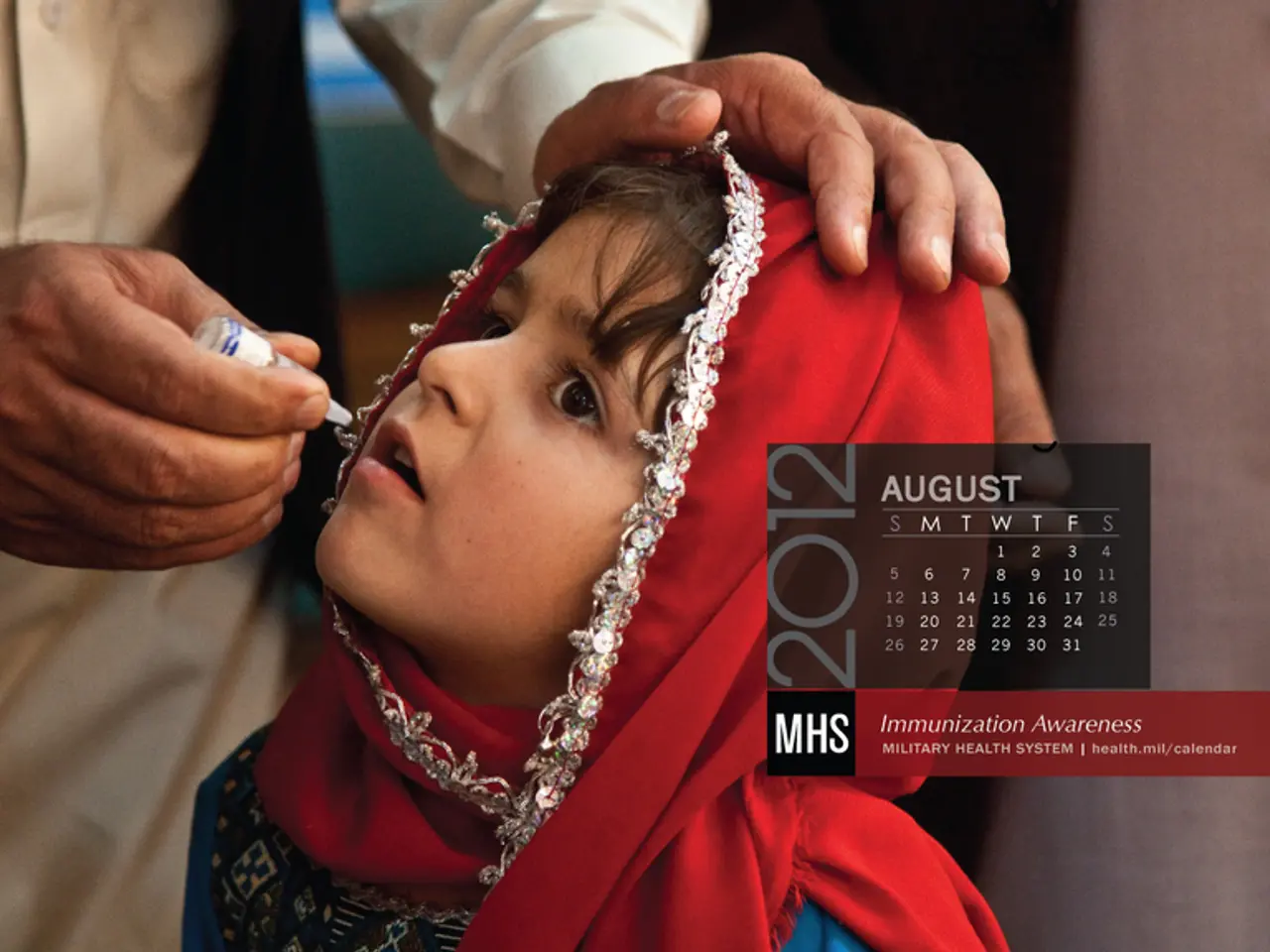Many Americans Remain Misinformed about Measles, According to Polling Data
In a concerning development, the ongoing measles outbreaks in the United States are reaching alarming levels, with the latest data indicating that 2025 is already the worst year on record for measles since 2019 [1][4][5]. The Centers for Disease Control and Prevention (CDC) reports that as of mid-April, over 800 measles cases have been documented this year, with most outbreaks occurring in Texas, New Mexico, and Oklahoma [2].
The declining vaccination rates among U.S. children are a significant contributing factor to this surge. According to the latest CDC data, MMR vaccination among kindergarteners dropped to 92.5% for the 2024-2025 school year, down from 95.2% in 2019-2020 [1][5]. This decline is concerning because fewer vaccinated children increase the risk of outbreaks, as evidenced by the current measles cases [1][4].
The KFF released a poll on Wednesday, surveying over 1,300 adults about the ongoing measles outbreaks and debunked claims made by the anti-vaccination movement [1]. The poll found that only 56% of respondents and 48% of parents of children under 18 were aware that measles cases have been higher this year than in the recent past [1].
One of the most troubling findings from the poll was that a third of Americans reported hearing the claim that the measles vaccine is more dangerous than measles, compared to 18% last year [1]. Moreover, 63% of respondents had heard about the false link between vaccination and autism, and 20% had heard about vitamin A being supposedly able to prevent measles [1].
The responses regarding the claims about measles vaccination had a strong partisan gap: 35% of Republicans agreed that it was definitely or probably true that the measles vaccine causes autism, compared to 10% of Democrats [1]. Similarly, 75% of Democrats were worried about the outbreaks, compared to 28% of Republicans [1].
The ongoing actions of Robert F. Kennedy, the current Secretary of Health and Human Services, have been a source of concern. Kennedy has been spreading misinformation about the safety of vaccines and downplaying the ongoing measles outbreaks [1]. His actions could potentially amplify people's beliefs in the false claims about measles vaccination.
Despite the concerning trends, some states have managed to maintain high vaccination rates. For example, Connecticut achieved a 98.3% MMR vaccination rate for the 2024-2025 school year, exceeding the herd immunity threshold [3].
The decline in vaccination rates has been linked partly to rising vaccine exemptions and hesitancy that increased during and after the COVID-19 pandemic [1][4]. If more granular data on partisan differences in measles vaccine beliefs are needed, targeted surveys or polls from public health or social science sources after 2024 would be required.
As the measles outbreaks continue to spread, it is crucial for public health officials and leaders to address the misconceptions and promote the importance of vaccination. The loss of the U.S.'s official measles-free status is a real possibility if the current trends continue [1][4].
References:
[1] KFF Health Tracking Poll - April 2025 [2] CDC Data Tracker - Measles Cases and Outbreaks [3] Connecticut Department of Public Health - Vaccination Rates [4] World Health Organization - Global Measles and Rubella Control and Elimination [5] CDC Morbidity and Mortality Weekly Report - Measles - United States, 2024-2025
- Gizmodo recently published an article discussing the ongoing concerns about the measles outbreaks in the U.S., especially the worrying trend of increased cases in 2025 [1][4][5].
- Despite the significant efforts of public health organizations like the Centers for Disease Control and Prevention (CDC), the declining vaccination rates among U.S. children are contributing to the rise in measles cases [2].
- In a poll conducted by the KFF, it was found that one-third of Americans believe the claim that the measles vaccine is more dangerous than measles itself, a disturbing figure that highlights the need for science-based health education [1].
- In the realm of tech and future technology developments, addressing misinformation about health issues like vaccines is a critical aspect of general-news and health-and-wellness, especially considering the impact such misconceptions can have on politics, a subject that intersects with these domains in significant ways.




